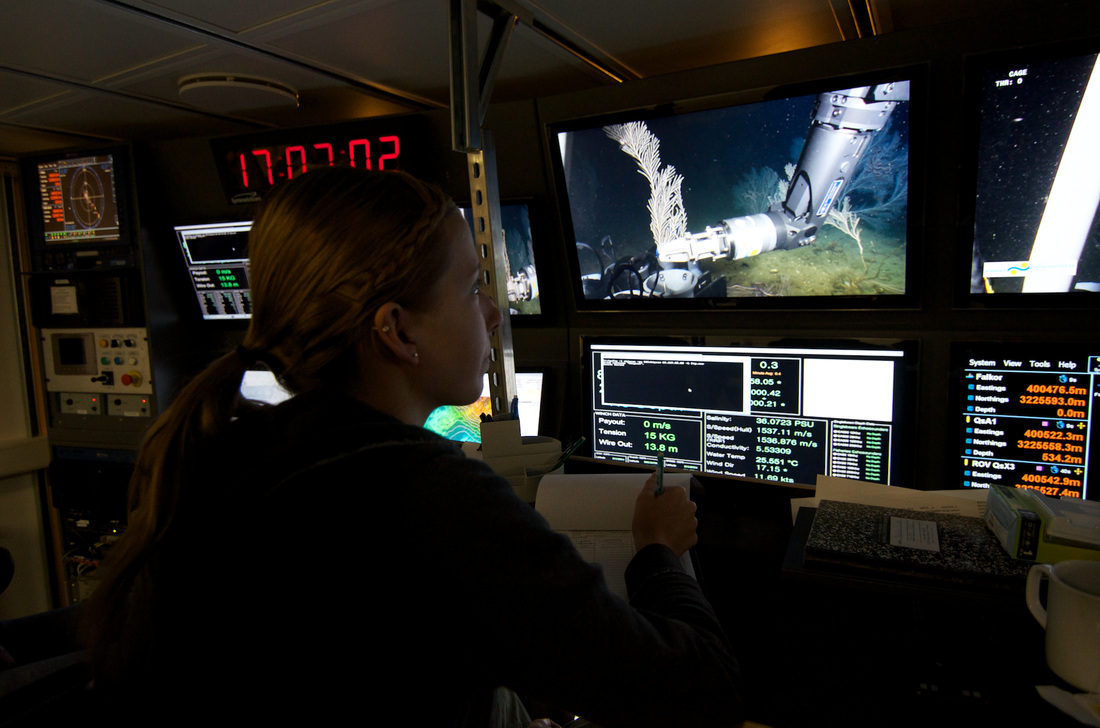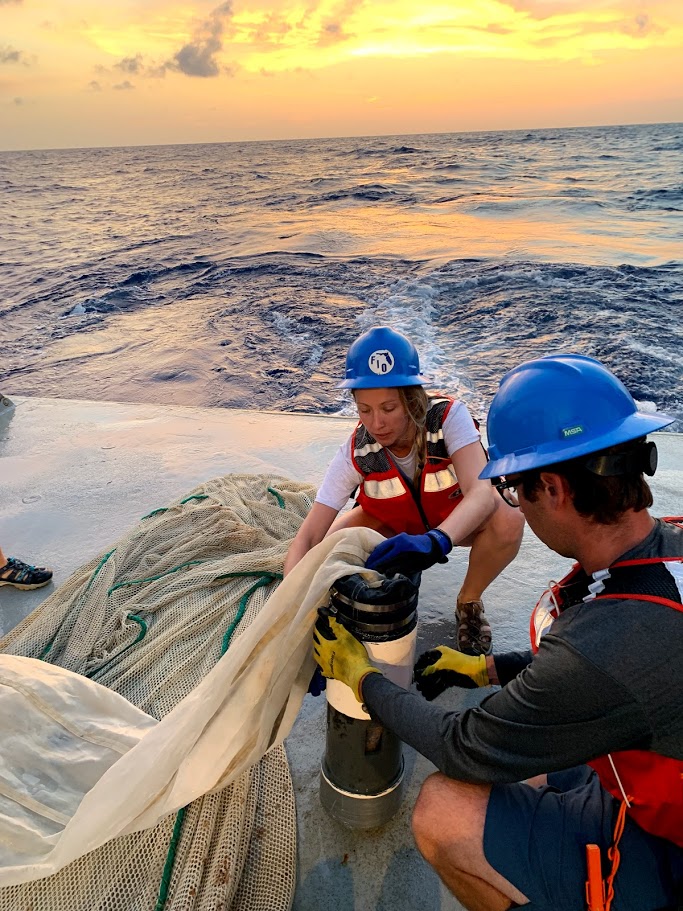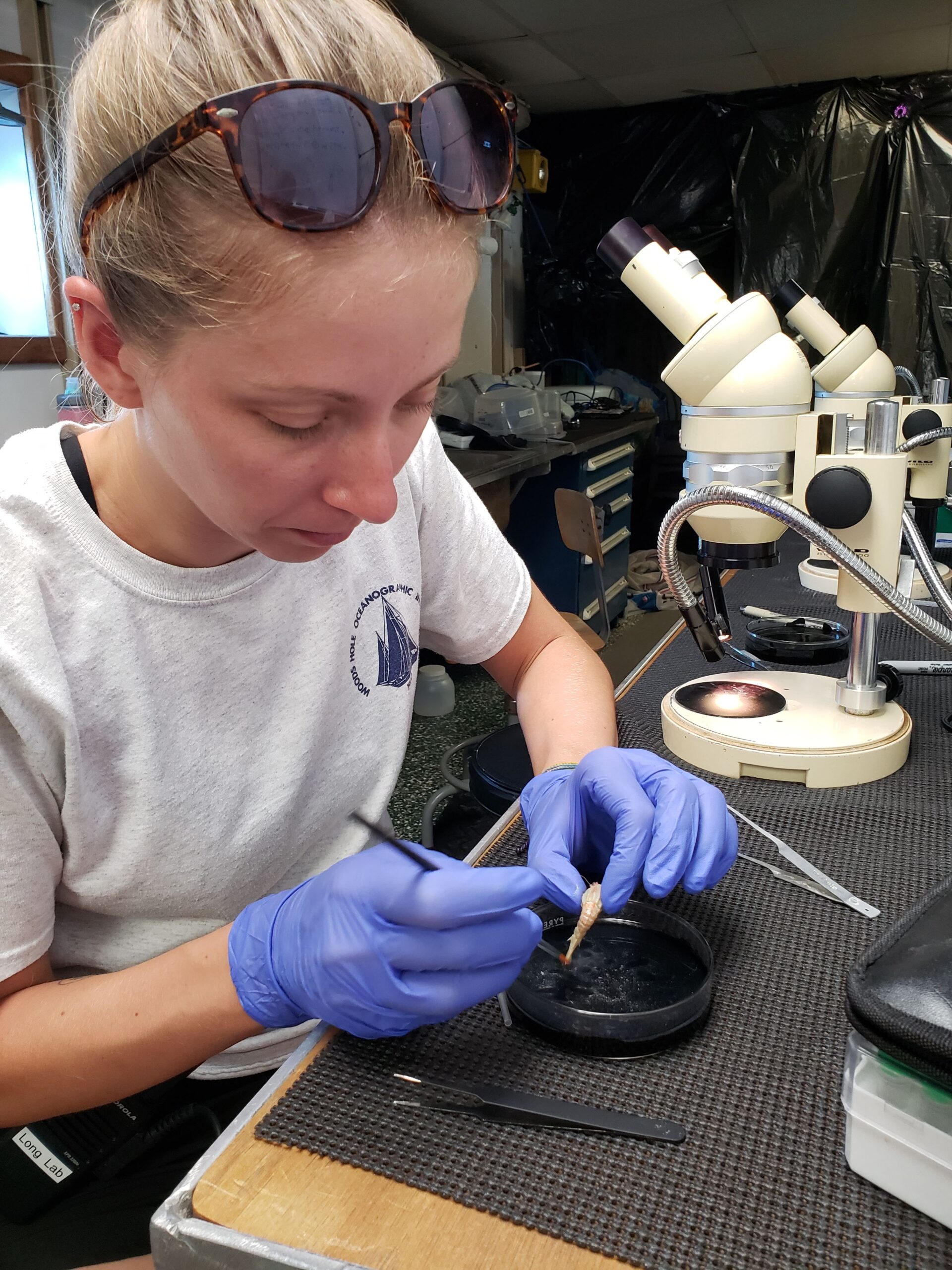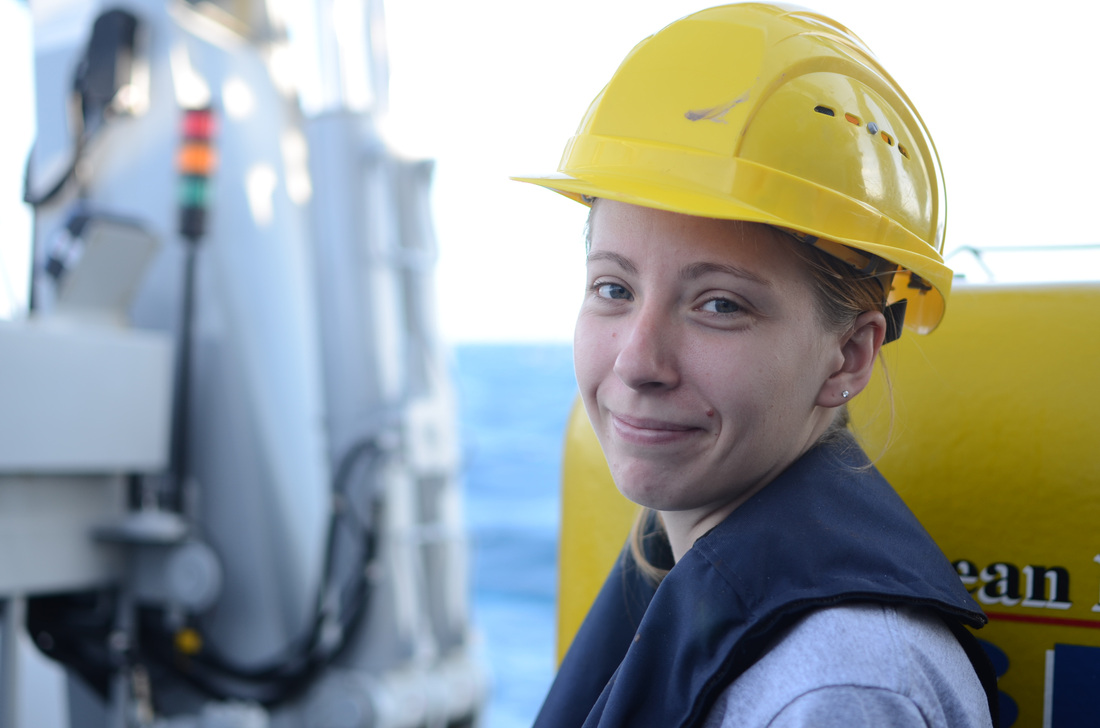Danielle DeLeo
Smithsonian National Museum of Natural History, USA
Twitter; Website
What has been your personal journey into the deep-sea? (Did you always know this is what you wanted to do, or start out on a completely different path?). In other words, what unique journey led you to where you are now?
I started out on a very different path- as a business communications major. I didn’t have a lot of exposure to STEM prior to college and as a first-generation college student and a city kid growing up in Philadelphia, I didn’t consider marine biology as a potential career path for myself. Luckily, after taking some STEM / biology courses as an undergrad at Penn State, I decided to change my major to biology in my junior year. Several advisors tried to discourage me from making the change so late in the game, but I knew it was the right choice for me. Not long after, I stumbled upon an undergraduate research experience in a deep-sea biology lab that ultimately led me down my current career path!
What is your current research question and why are you interested in this topic?
I am currently investigating the evolutionary history and connectivity of deep-sea corals (and other invertebrates) at the Smithsonian’s National Museum of Natural History. My research career started out using genomic techniques to investigate anthropogenic impacts in the deep sea with a focus on corals and progressed into studying the evolution of vision and bioluminescence in deep sea crustaceans, so my current work is an interesting compilation of those two research paths.
What have been some challenges in your work or in studying the deep sea in general? Has your research turned out how you expected?
If I learned anything about conducting research at sea, and deep-sea research in particular, it is that things rarely turn out as expected! Accessing live specimens from the deep sea and/or preserving them properly for experimental/genomics work still remains a big challenge. When I first started out, I also don’t think I fully realized the potential of ‘omics related methods and research for non-model deep-sea fauna.
Why is this work important to you and society as a whole?
The biology and evolutionary history of deep-sea organisms are still so poorly understood. I feel like a true explorer when conducting my research. Every dataset is novel and uncovers a missing piece to the deep sea puzzle. I believe my research, and the diverse research coming out of the DSBS in general, helps bring more awareness to the importance and internal dynamics of deep-sea ecosystems which are currently being exploited for resource extraction at unprecedented rates.
Because we are such an international organization, can you describe what the deep-sea science community is like in your region?
The deep-sea community in the Northeastern United States is small but very interconnected.
What is your current position (student, researcher, government, non-profit etc) and what do you like about your current role in deep-sea science?
I am currently a Postdoctoral Fellow at the Smithsonian National Museum of Natural History. While the museum is currently closed due to the global pandemic, I really enjoy working at such an integrative and collaborative institution that hosts several active researchers in deep-sea science.
What advice could you offer to aspiring deep-sea biologists?
My advice would be to seek out as many research opportunities as you can to build a diverse skill set, and to try hard to find good mentors. Having a good support system and finding people who will advocate for you can really make all the difference, it has for me!
What is the biggest challenge or project you look forward to addressing in the future?
I really look forward to applying the skills from my past and present projects to future endeavors investigating deep-sea symbioses and the role of deep-sea coral bioluminescence.
What is your favorite thing about the deep sea?
After diving in the HOV Alvin in graduate school, I became deeply fascinated with deep-sea bioluminescence. But overall, I would have to say my favorite thing about the deep sea is the unknown- there is still so much to learn and to be explored!




